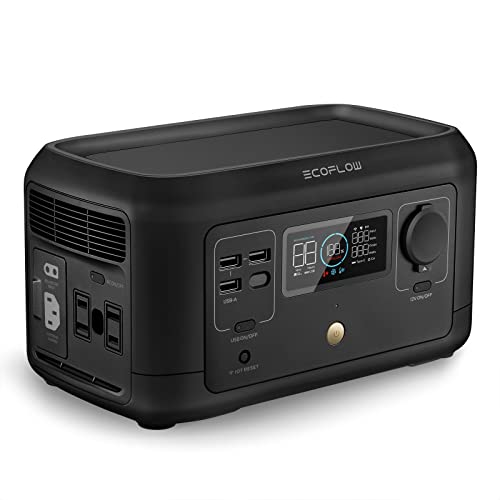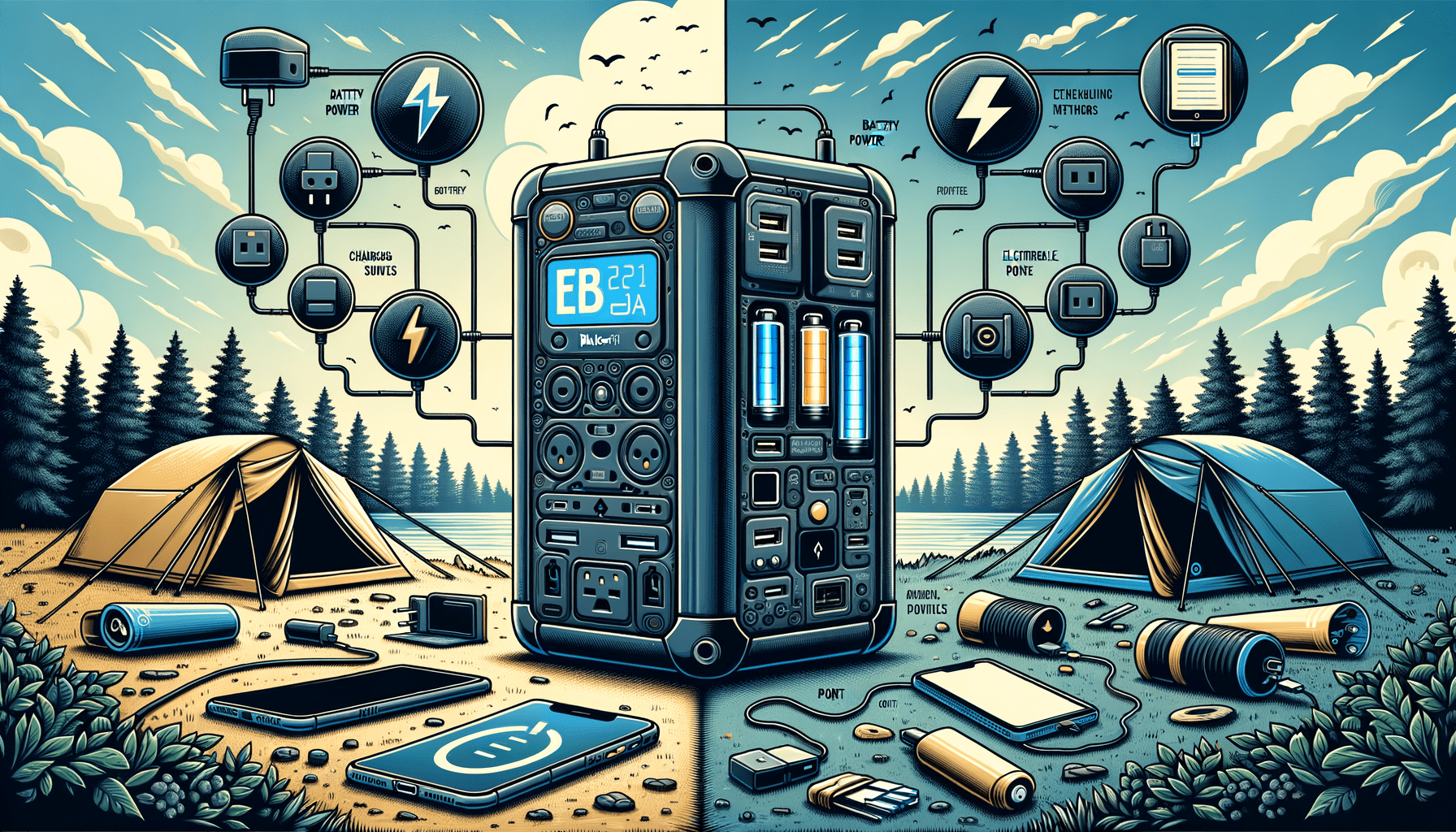In the world of portable power stations, the Jackery Explorer 300 and the EcoFlow River Mini stand out as popular choices for campers, outdoor enthusiasts, and those needing backup power for their devices. Both are compact powerhouses designed to keep your gadgets charged when you’re off the grid. Let’s dive into comparing the two to help you decide which might be the better fit for your portable energy needs.
Technical Specifications Showdown
| Feature | Jackery Explorer 300 | EcoFlow River Mini |
|---|---|---|
| Battery Capacity | 293Wh | 210Wh |
| Continuous Inverter Rating | 300W | 300W |
| AC Output | 110V, 60Hz | 120V, 60Hz |
| Cycle Life | 800 cycles to 80% capacity | 500 cycles to 80%+ |
| Weight | 7.1lbs (3.2kg) | 6.3lbs (2.85kg) |
| Dimensions | 9.1 x 5.2 x 7.8 inches | 9.8 x 5.5 x 5.2 inches |
| Recharging Time (Wall Outlet) | 4.5 hours | 1.5 hours |
| Solar Charging Compatibility | Yes | Yes |
| Number of AC Outlets | 2 | 2 |
| USB-C Port | 60W (PD) | 100W (PD, Wireless version only) |
| Warranty | 3 years | Varies |

While both power stations boast an inverter rating of 300W and similarly sized AC outputs, the Jackery Explorer 300 takes a slight edge with a higher battery capacity of 293Wh compared to the River Mini’s 210Wh. However, the River Mini charges faster via an AC outlet, reaching full charge in just 1.5 hours. The Jackery’s longer warranty period also provides peace of mind for durability and long-term use.
Portability and Design
When it comes to form and function, portability is crucial. Slight differences in size and weight could be the deciding factor for anyone who’ll be on the move with their power station. The River Mini is marginally lighter and more compact, which may appeal to those who prioritize space-saving and ease of transport.
Charging On-The-Go
Both the Explorer 300 and the River Mini provide solar charging options, though the efficiency will vary based on the type of solar panel used and the conditions of the environment. Jackery recommends pairing the Explorer with its SolarSaga panels for optimal performance, and the same goes for pairing EcoFlow’s solar solutions with the River Mini.
Powering Your Devices
Compatibility with devices is key, and both power stations fare well here. The Explorer 300 can power up to six smart devices at once, while the River Mini can handle up to eight, thanks to its extra USB ports. Both include Pure Sine Wave AC outlets, ensuring sensitive electronics like laptops and cameras can be safely charged.
Safety First
Safety can’t be overlooked. Both models incorporate advanced BMS to protect against overcurrent, overvoltage, and overheating. With safety guarantees, users can feel secure while powering their devices.
Let’s Talk Extra Features
Extras can give one model the edge over another. The Jackery Explorer 300 offers dual charging, allowing users to charge the unit via AC and USB-C simultaneously for a rapid recharge. The EcoFlow River Mini offers a fast charge to 80% in just over an hour, and its wireless version includes a convenient wireless charging pad and an additional high-power USB-C port.

Ultimately, the choice between the Jackery Explorer 300 and EcoFlow River Mini might come down to personal preference regarding capacity, portability, and additional features. Whatever your decision, both are solid picks for reliable portable power, ensuring your devices stay charged wherever adventure leads you.


Leave a Reply